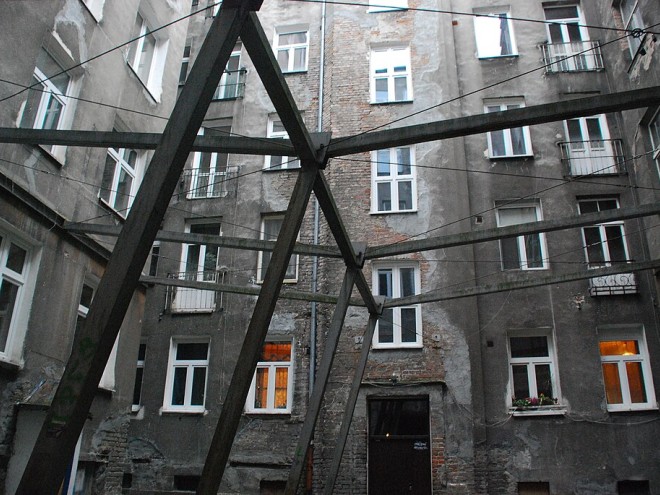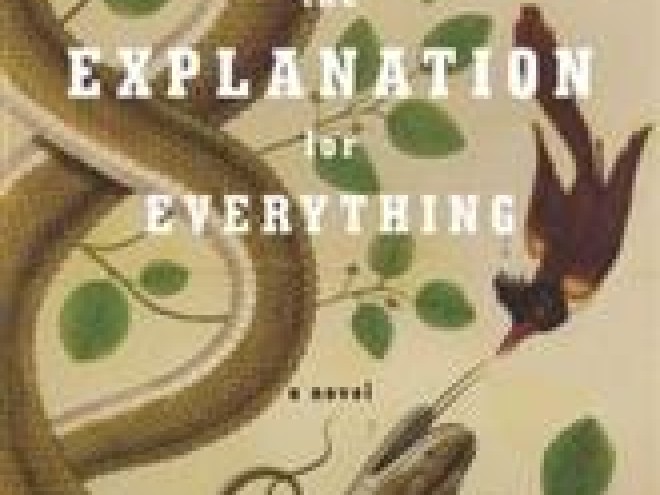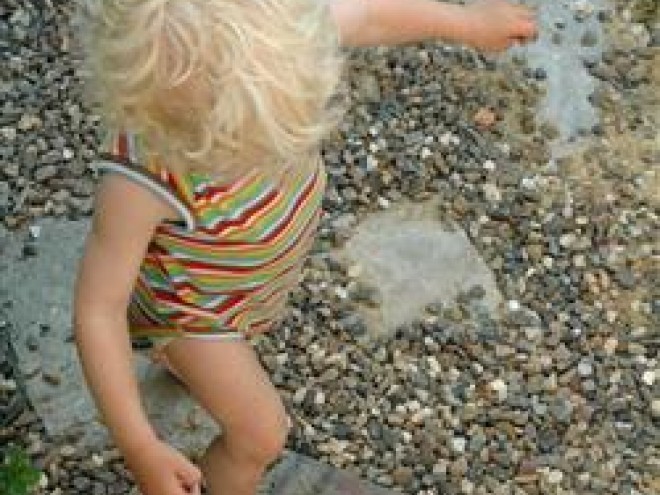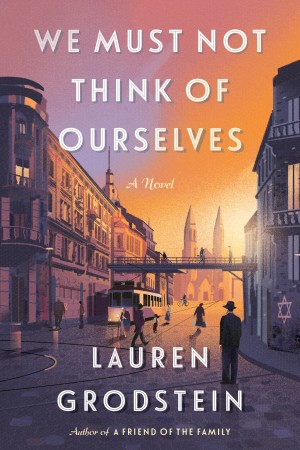Earlier this week, Lauren Grodstein wrote about her strange relationship with her son’s all-American looks. Her most recent novel, The Explanation for Everything, will be published next week by Algonquin Books. She has been blogging here all week for Jewish Book Council and MyJewishLearning.
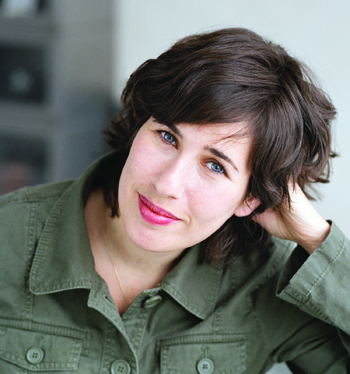 For the past eight summers, I’ve taught creative writing at the Paris American Academy, a small school in a neighborhood dotted with plaques celebrating French heroism during World War II. The plaques are placed high on the walls: this one marks where one Resister was shot, that one reminds us of a reassuring speech of DeGaulle’s. But when I leave this neighborhood and cross a few bridges to the Marais, a traditionally Jewish neighborhood, I lift my eyes to other sorts of plaques: this one marks where Jewish children were taken from their school and shipped to Auschwitz, that one remembers the complicity of the French.
For the past eight summers, I’ve taught creative writing at the Paris American Academy, a small school in a neighborhood dotted with plaques celebrating French heroism during World War II. The plaques are placed high on the walls: this one marks where one Resister was shot, that one reminds us of a reassuring speech of DeGaulle’s. But when I leave this neighborhood and cross a few bridges to the Marais, a traditionally Jewish neighborhood, I lift my eyes to other sorts of plaques: this one marks where Jewish children were taken from their school and shipped to Auschwitz, that one remembers the complicity of the French.
The complicity of the French. My family is of Polish and Russian descent; during the early part of the 1900s, they fled their Eastern European shtetls and headed west. Those who had the money kept going to New York. Those who couldn’t stayed in France. Many of those who stayed were sent to Auschwitz during the war. The few who survived, my cousins, live in Paris.
Every summer, while I’m in France, I have dinner with these cousins, and we talk about all sorts of things: travel and books and movies, nothing too serious. They’re wonderful cooks and serve very French meals, h’ors d’oeuvres to start, cheese to finish. We sit out in their garden after and sometimes I steal one of their cigarettes.
This summer, I mentioned that I’m working on a new novel, and that one of the characters has a grandmother who survived the war in France. My cousin Francois was curious. “How did she survive?”
I was embarrassed that I hadn’t hashed out the details yet – maybe she’d been hidden by a dairy farmer? Maybe her father had been a butter dealer before the war and used his connections to save her?
“Absolutely not,” Francois said. “The Jews weren’t in the butter business, and anyway the dairy farmers were in Normandy, which was occupied by the Germans. Your character would have gone south, as close to Spain as she could. She would have stayed with subsistence farmers.”
We went back and forth on the logistics of this character’s story for a while, with Francois describing the way the police kept records of its French citizens, the way they rounded up all the Jews one night, the way they stuffed them into a stadium and then onto the cattle trains. This all happened when his mother was seven years old; she’d spent the night of the round up away from home, with her mother. When they returned they found their apartment ransacked, her beloved aunts and uncles all gone. Within weeks her mother found her refuge with peasants in the south, where she lived out the bulk of the war. Many of the people she knew died in the camps.
As the details grew more gruesome, I found myself feeling off-balance. How could I spend summers here so blithely, in a country that hunted down my own family? And how could Francois be so proud to be French, to have married a French woman, to be raising French kids? To serve me these entirely French meals? “And you’re sure this wasn’t the Germans, doing these things?” I was used to thinking of Germans as the enemy.
“No no,” he said. “It was the French.”
I paused, then said something rather impolite, especially considering Francois’s eternal hospitality. “I just don’t understand how you can live here.”
“Well,” he said, calmly topping off our glasses, like we were discussing the weather. “How is it that you can live where you live? In the USA?”
“Francois, the USA never hunted down its own people!”
“Didn’t it?” he said. When I didn’t answer, he gave me that French shrug meant to convey the unsayable. I looked away.
“Listen, all countries have their own horror stories,” he said. “And you know, it was French farmers who saved my mother, a French policeman who told my grandmother to stay away the night of the round up. French resistance members who found my grandmother her false papers. And years before that, it was France that welcomed them when they escaped the Cossacks.”
“Yes, but – but then they -” He was right, of course – but I was also right, a little.
“Then they what? Some French people were good, some were not so good. History is complicated,” he said. “It’s complicated for me, and for you, too, non?”
What to say to that? I picked up one of his cigarettes, compelled by the force of an old bad habit. France is complicated, and being Jewish anywhere is complicated, I know that. My own country is complicated, and so is the story of how I came to live there. But that night, lulled by the wine and the smoke and the cool French air, I gave in to not knowing how to feel. It wasn’t an argument I could win, nor was it one I wanted to win. What did I want to prove? France was bad? Its people were? Then why was I so happy there, with my French friends, French cousins, French summers? Why were people so gracious to me? Why had I eaten, on its sidewalks, some of the best Jewish food of my life?
I lit my cigarette, defeated by the complications and my heavy belly. So instead of solving anything, I decided to be grateful to be where I was, with the family that survived.
Lauren Grodstein’s books include the novels The Explanation for Everything, A Friend of the Family, and Reproduction is the Flaw of Love and the story collection The Best of Animals. Lauren teaches creative writing at Rutgers-Camden, where she helps administer the college’s MFA program. Visit her website here.Lauren Grodstein is the author of Our Short History, The Washington Post Book of the Year The Explanation for Everything, and The New York Times bestselling A Friend of the Family, among other works. Her stories, essays, and articles have appeared in various literary magazines and anthologies, and have been translated into French, German, Chinese, and Italian, among other languages. Her work has also appeared in Elle, The New York Times, Refinery29, Salon.com, Barrelhouse, Post Road, and The Washington Post. She is a professor of English at Rutgers University-Camden, where she teaches in the MFA program in creative writing.
